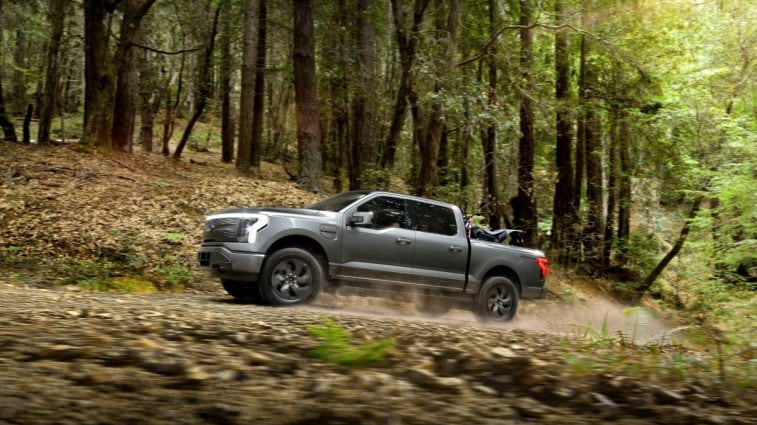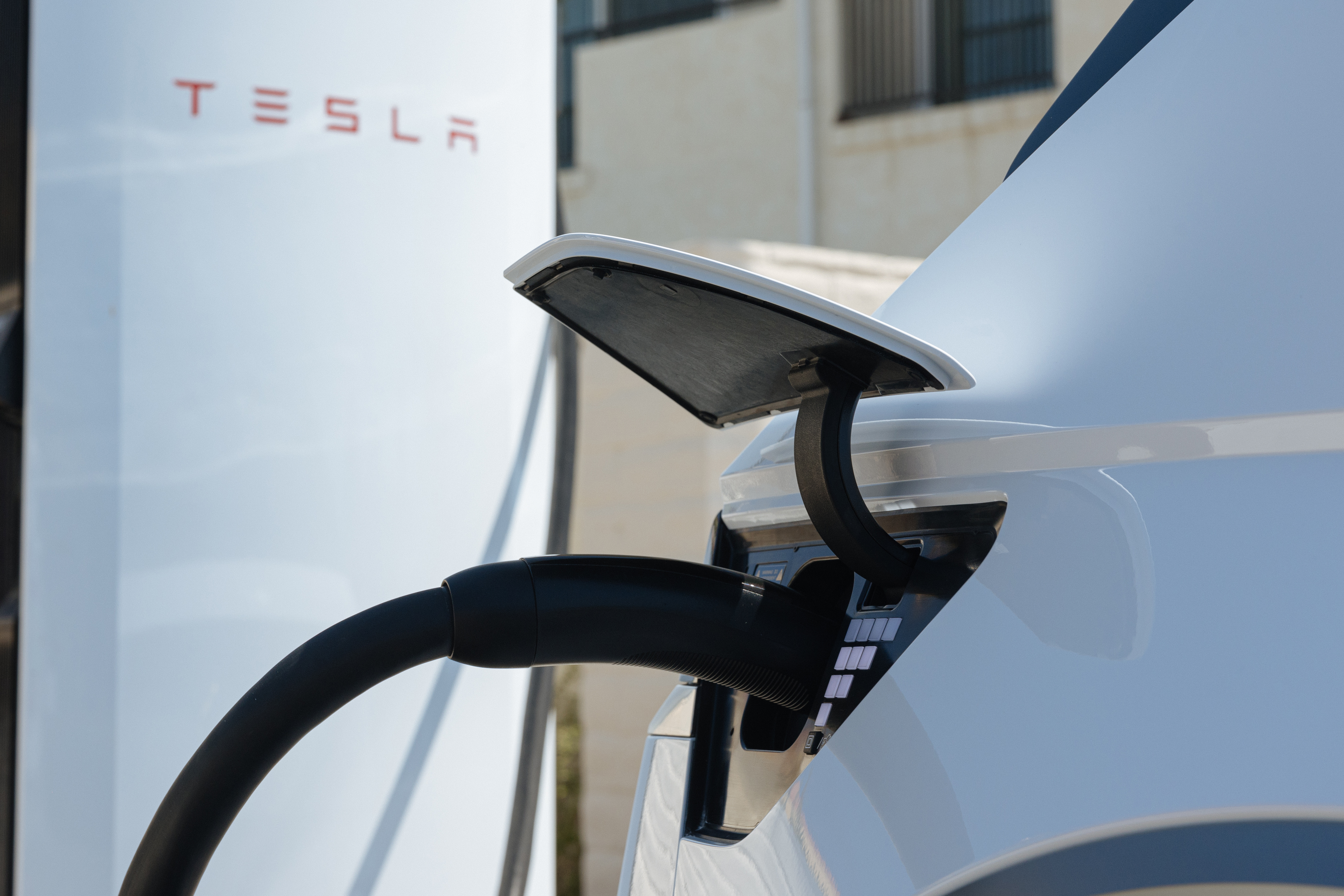
That’s simple physics and something every fleet manager must consider in planning. But it’s not much of a problem for the average gas-powered truck owner. Gas is easy to find, and a gas tank so quick to refill that range loss is barely a factor in most truck owners’ hauling plans.
Related: Payload and Towing Capacity in Electric Vehicles
But America’s automakers have started introducing electric trucks. Truck owners need to know — is range loss a significant factor in owning one?
A new study from AAA says electric trucks lose more range than gas-powered trucks to a load in the bed.
Range Drops by About a Quarter When Loaded to Max
The AAA tested a 2022 Ford F-150 Lightning, empty and carrying a 1,400-pound load in the bed (near the truck’s maximum hauling capacity). They drove the truck on a 7.5-mile oval test track.
The EPA lists a 300-mile range for the specific trim level and options set AAA tested. The truck went 278 miles when unloaded. With a 1,400-pound load in the bed, the truck made it 210 miles — a 24.5% range loss.
Gas-Powered Trucks Would Lose 14%+ in Those Conditions
AAA did not conduct equivalent testing with a gas-powered truck. But the U.S. Department of Energy estimates that gas-powered vehicles lose about 1% of their fuel economy for every additional 100 pounds of load. So a gas-powered truck hauling a load would lose at least 14% of its range — possibly more if the load was boxy and introduced aerodynamic drag.
Related: How Far Can An Electric Truck Tow?
So yes, electric trucks haul less efficiently than gas-powered trucks and lose more range to added weight.
AAA: Not Many Drivers Use All Their Payload Capacity
But, says AAA Director of Automotive Engineering Greg Brannon, that may not be a huge consideration for many truck shoppers. “Our testing revealed a significant range reduction, but it’s important to note that the Lightning was loaded to near its maximum capacity,” Brannon says. “Most buyers will likely use their Lightning with a lighter load, resulting in a much smaller range reduction.”
The tests are probably a more important consideration for those buying a fleet of trucks, particularly if they plan to fit them with permanent loads like built-in toolboxes and racks.







